
Thousands of people have gathered at Stonehenge to celebrate the first sunrise after the winter solstice.
Pagans and druids dressed in traditional clothing joined families and a choir to mark the end of the longest night of the year.
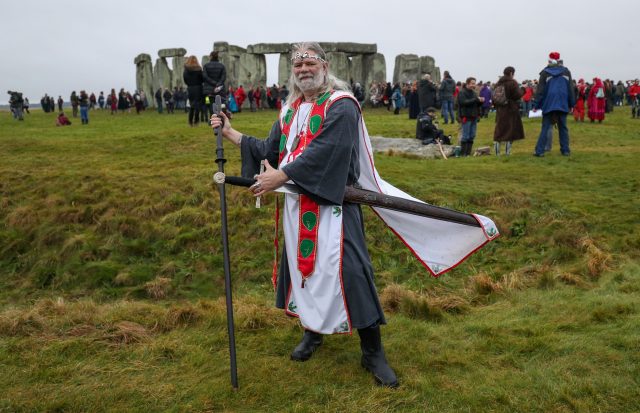 Arthur Pendragon (formerly John Rothwell), Druid and self-appointed king, at Stonehenge (Andrew Matthews/PA)
Arthur Pendragon (formerly John Rothwell), Druid and self-appointed king, at Stonehenge (Andrew Matthews/PA)
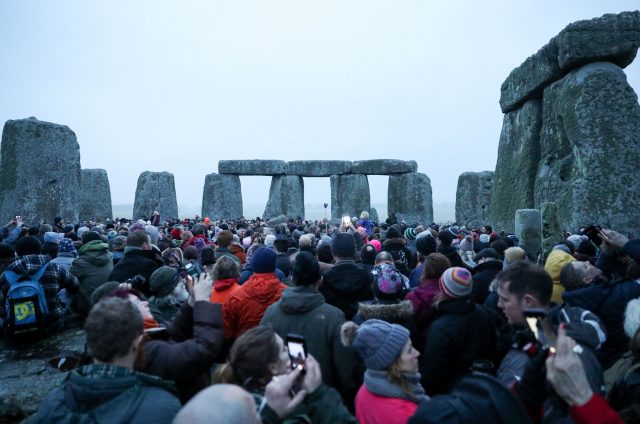 (Andrew Matthews/PA)
(Andrew Matthews/PA)
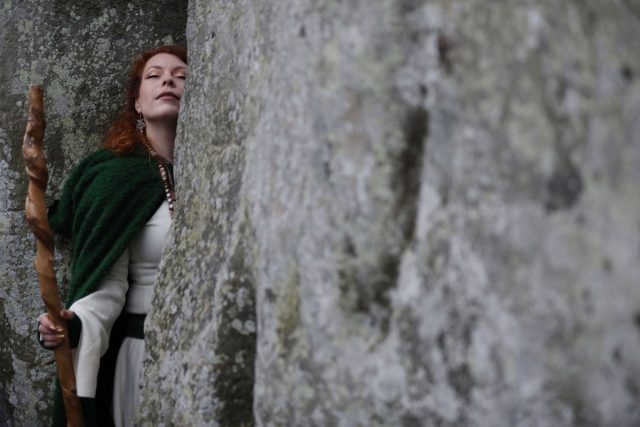 (Andrew Matthews/PA)
(Andrew Matthews/PA)
9 minutes until sunrise! #WinterSolstice pic.twitter.com/McKQrMSaFN
— English Heritage (@EnglishHeritage) December 22, 2017
Thick cloud at the prehistoric site in Wiltshire meant the sunrise, at 8.10am, was not visible.
Kate Davies, of English Heritage, said: “We were delighted to welcome approximately 5,000 people to Stonehenge to celebrate winter solstice this morning.
“It was an enjoyable and peaceful celebration despite the damp weather and it was great to see so many families enjoying the music and chanting around the monument.
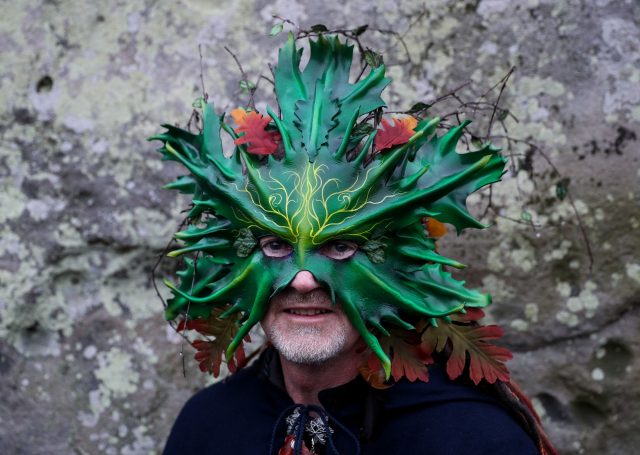 (Andrew Matthews/PA)
(Andrew Matthews/PA)
More than 5,000 people braved the cold weather to celebrate the #WinterSolstice at @EH_Stonehenge in Wiltshire this morning! https://t.co/vUYqAFKs8J pic.twitter.com/P0ZglLhfXU
— English Heritage (@EnglishHeritage) December 22, 2017
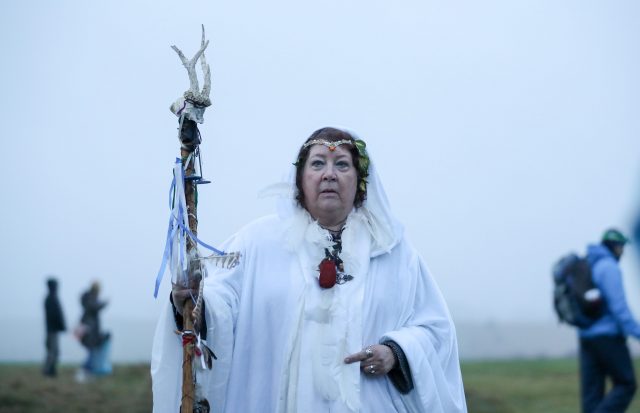 (Andrew Matthews/PA)
(Andrew Matthews/PA)
“We’d like to thank all our partners for helping to organise a safe solstice and wish everyone who attended a safe trip home.
“We will open on Boxing Day after being closed on both Christmas Eve and Christmas Day.”
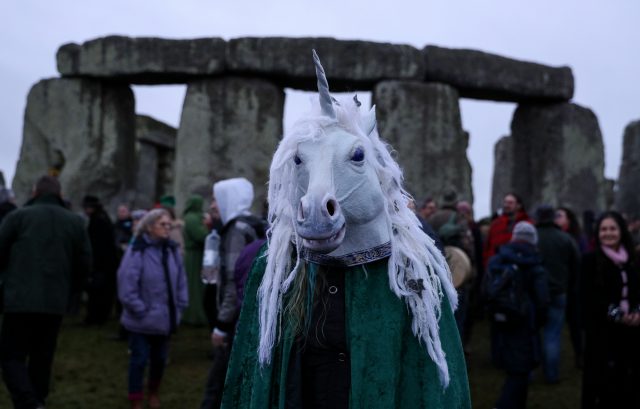 (Andrew Matthews/PA)
(Andrew Matthews/PA)
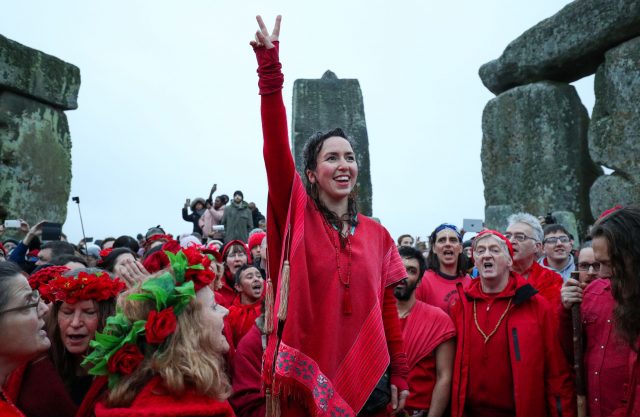 (Andrew Matthews/PA)
(Andrew Matthews/PA)
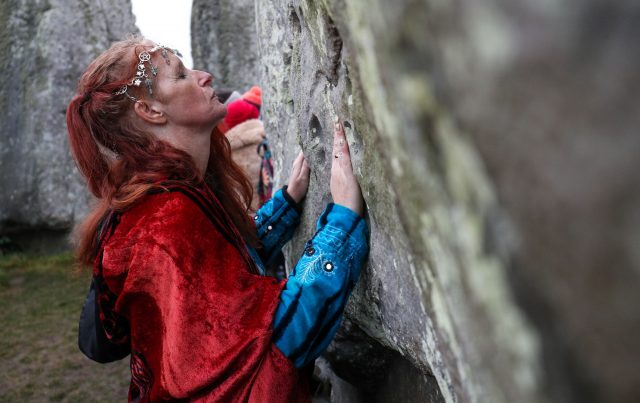 (Andrew Matthews/PA)
(Andrew Matthews/PA)
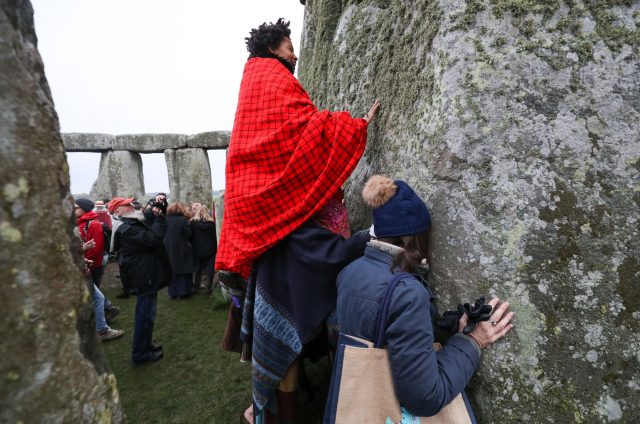 (Andrew Matthews/PA)
(Andrew Matthews/PA)
The winter solstice was on December 21, marking the start of astronomical winter.
Stonehenge is believed to have been used as an important religious site by early Britons 4,000 years ago.
More than a million people flock to Stonehenge every year, with thousands attending ceremonies to mark the solstices in summer and winter.


Comments & Moderation
Readers’ comments: You are personally liable for the content of any comments you upload to this website, so please act responsibly. We do not pre-moderate or monitor readers’ comments appearing on our websites, but we do post-moderate in response to complaints we receive or otherwise when a potential problem comes to our attention. You can make a complaint by using the ‘report this post’ link . We may then apply our discretion under the user terms to amend or delete comments.
Post moderation is undertaken full-time 9am-6pm on weekdays, and on a part-time basis outwith those hours.
Read the rules here